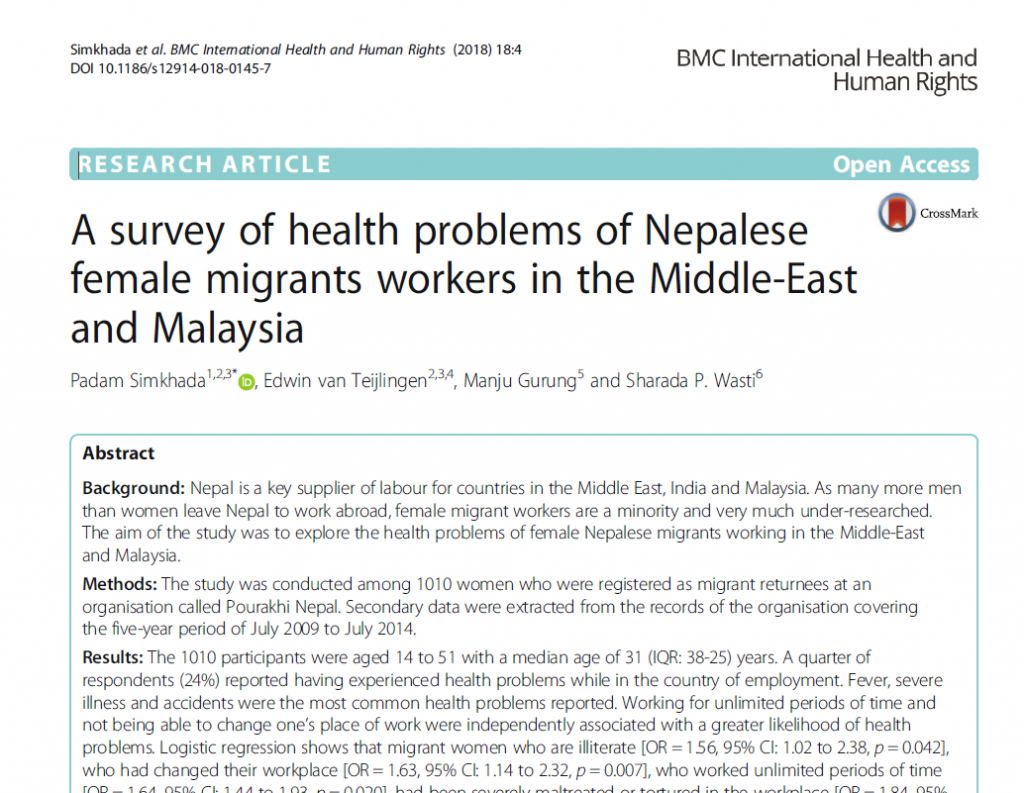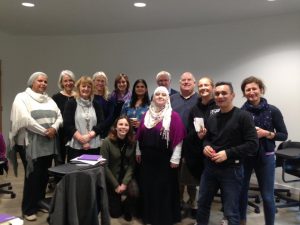A quieter week policy-wise following the cabinet reshuffle.
New minister – new set of priorities?
Our new minister has been fairly quiet as he settles in and thinks about the many priorities – we expect that the PM wants him to focus on the “major review” – and despite pressure he has refused to get drawn into a discussion of details. He gave a formal response to a parliamentary question earlier this week:
Q – Wes Streeting (Labour): To ask the Secretary of State for Education, if he will publish the (a) scope, (b) timetable and (c) membership the review panel for the review of university funding and student financing announced by the Prime Minister in her speech to the Conservative Party Conference in October 2017.
A – Sam Gyimah (Conservative, new Universities Minister):
As stated in the Industrial Strategy white paper published on 27 November 2017, the government is committed to conducting a major review of funding across tertiary education to ensure a joined-up system that works for everyone.
As current and significant reforms move into implementation, this review will look at how we can ensure that the education system for those aged 18 years and over is:
- accessible to all;
- supported by a funding system that provides value for money and works for both students and taxpayers;
- incentivises choice and competition across the sector;
- and encourages the development of the skills that we need as a country.
The government will set out further details on the review in due course.
And the minister spoke at Queen Mary University of London this week in a date agreed while he was still at the Ministry of Justice – clearly the subject matter had moved on given his new appointment. The discussion was covered by Wonkhe – it seems to have been a balanced and reasonable set of responses from someone who is thinking carefully before leaping into the fray.
Of course there has been plenty of advice for the new minister – from calls for him to get stuck into Brexit discussions to defend research funding, mobility etc. (he did vote remain, after all), to questions about the freedom of speech agenda and BME students at Oxbridge (he was one).
UKRI
John Kingman has been named as the permanent chair of UK Research and Innovation, officially taking the role in April. He has been acting as the interim chair to date to support the shadow running and new set up of the organisation. The Commons Science and Technology Committee are required to ratify his appointment. Also reported in Times Higher.
Freedom of speech
The debate over free speech continued in the Parliamentary Joint Human Rights Committee this week. NUS VP Doku has called for the number of events with freedom of speech issues to be published to quantify if the ‘issue’ is government rhetoric or genuinely needs tackling. Wes Streeting (MP Ilford North and former NUS President) claims the challenges are “overstated” and that Prevent has had the greatest impact on freedom of speech. He continued that no platforming, under NUS policy, was only used to prevent racism and fascism.
International Students
The Home Affairs Committee published Immigration policy: basis for building consensus calling on the Government to make it a clear and stated objective of public policy to build greater consensus and trust on immigration as part of major overhaul of immigration policy making. Read the short summary. The report does not consider specific policy options for EU migration. The Committee will examine these once the Government publishes its forthcoming White Paper on immigration.
Chair of the Home Affairs Committee, Rt Hon Yvette Cooper MP commented:
- “The Government has a responsibility to build consensus and confidence on immigration rather than allowing this to be a divisive debate. But that requires a transformation in the way that immigration policy is made as too often the current approach has undermined trust in the system.
- The net migration target isn’t working to build confidence and it treats all migration as the same. That’s why it should be replaced by a different framework of targets and controls. And frankly the system needs to work effectively. As long as there are so many errors and so many problems with enforcement, people won’t have confidence that the system is either fair or robust.”
The Report recommends:
- An Annual Migration Report setting out a three-year, rolling plan for migration.
- Clearer and simpler immigration rules, underpinned by principles and values – including the contributory principle, supporting family life and safeguarding security
- Replacing the net migration target with an evidence-based framework for different types of immigration that takes into account the UK’s needs. There should be no national target to restrict the numbers of students coming to the UK, and at a minimum the Government should immediately remove students from the current net migration target.
- An immigration system which treats different skills differently. There is clear public support for the continued arrival of high-skilled (not just highly paid) workers who are needed in the economy. Immigration rules should allow UK businesses and organisations easily to attract top talent, with restrictions and controls focused more on low-skilled migration.
- Immigration plans should be linked with training plans to increase domestic skills in sectors and regions where there are skills gaps that need to be filled through migration.
- A national integration strategy and local authority led local integration strategies
The report also notes:
- “In calling for more international students to come and study in the UK, universities must be mindful of local impacts of large numbers of students and work with local authorities to help manage pressures on housing and public services. Universities should be expected to consult local authorities on future student numbers in their area.”
Mayoral pressure
The Financial Times ran an article noting how seven cross-party metro mayors have united to press the Prime Minster to provide a ”more open and welcoming message” to overseas students. The mayors have also written to the Migration Advisory Committee. The FT quotes the letter:
- “As the UK prepares to leave the EU, it is important that any future immigration system acknowledges the vital contribution international students make to regional jobs and growth. This includes projecting a more open and welcoming message for international students.”
The letter combines last week’s HEPI report showing the huge net financial benefits international students bring with HESA data illustrating a downturn in international student numbers. The FT critiques the letter which uses 2016/17 data stating most students would have applied for their courses before the Brexit result was not known. What the FT fails to consider is that a lower conversion rate between application and enrolment does support the premise that Brexit has caused a fall in student numbers.
The Migration Advisory Committee is due to report to Government in September 2018, however, think tank HEPI is campaigning for an earlier response.
Widening Participation
Grammar Schools- A Financial Times article More grammar schools and lower tuition fees are not the answer covers the cabinet reshuffle (the widely reported demise of Justine Greening for blocking the PM’s school agenda) and draws on Education Policy Institute research:
- On grammar schools, EPI analysis is very clear — more selective schools might deliver a small exam grade benefit to those who gain entry, but at a cost to those (poorer) children who do not pass the entry test. More grammar schools are therefore likely to worsen the country’s social mobility problem.
Meanwhile A Guardian article aiming to criticise Damian Hinds suggests that Theresa May is still determined to push grammar schools through
BME withdrawal – The Guardian considers the influence of social cultural and structural factors in Why do black students quit university more often than their white peers? The article quotes the Runnymede Trust (think tank) 2015 report: “University institutions have proved remarkably resilient to change in terms of curriculum, culture and staffing, remaining for the most part ‘ivory towers’ − with the emphasis on ‘ivory’.”
Admissions – In Robin hood and the America dream a Dorset born educator and careers advisor compares the HE admissions differences between Finland, America and the UK, and contemplates their social mobility implications.
STEM
A National Audit Office report: Delivering STEM skills for the economy has been published this week. It suggests Government initiative to improve the quality of STEM provision and take up of these subjects and rectifying the skills mismatch has met with some success. However, it pushes for Government departments to create a joined up vision sharing their aims, and a co-ordinated cross departmental plan, the delivery of which can then be examined for value for money. The report notes that the STEM gender gap continues.
Technical education
The House of Lords Economic Affairs Committee continued its examination of the economics of higher, further and technical education across two sessions. The first session considered the differences between UK education provision and comparable economically advanced countries (e.g. Germany). The panel discussed how FE could be enhanced, which countries integrated FE and HE effectively, and methods of encouraging lifelong learning. The narrowing of subjects after GCSE was also criticised. The following session address whether HE was currently prioritised over technical education, and whether this produces individuals with the necessary skills. Apprenticeships and T-levels were discussed in detail.
Enterprise and Entrepreneurship
The QAA has published Enterprise and Entrepreneurship Education: Guidance for UK HE Providers. The guidance says
- “all students should have an opportunity to engage with Enterprise and Entrepreneurship, and to align it with their subject(s) of choice. This will enable them to identify and seek out new opportunities; have higher aspirations in their careers; be resilient; and better adapt to change”.
- “Learning about and experiencing Enterprise and Entrepreneurship while at university can have several benefits. It gives students alternative perspectives on their career options and ultimately, the confidence to set up their own business or social enterprise.”
The guidance aims to inform, enhance and promote the development of Enterprise and Entrepreneurship Education and includes description of good practice.
Consultations
Click here to view the updated consultation tracker. Email us on policy@bournemouth.ac.uk if you’d like to contribute to any of the current consultations.
Other news
Full on: In the brave new world of accelerated degrees and intensified courses a Wonkhe blogger talks about working and studying (MSc) full time. She says universities can make studying more accessible to employees and employers by:
- Teach modules in intensive blocks, e.g. 3 days, rather than spreading across a whole term
- Provide assignment information well in advance of deadlines, ensuring no deadline clashes between other modules on the same programme
- Sharing reading lists, presentations and essay topics well in advance of a module beginning – so the employed student can start reading and have an overall understanding of the subject area before attending lectures.
- Careful structuring of the courses are important, as is the option to switch to part time study
- Access to robust pastoral care and academic check ins
On the employer side the blogger notes that planning a balanced workload with her managers and knowing when key work deadlines fall within her academic calendar. She also recommends employers take a personalised approach to their employees study/work balance. For some this could me changing their hours or work pattern for all or part of their course.
- “Studying is challenging. Working is challenging. Doing both at the same time certainly isn’t a walk in the park. However, employers and universities can help employed students to make it work.”
The Smart Machine Age: A Financial Times article describes the changes associated with the smart machines age and the skills graduates will need to develop.
- Smart technology is already moving beyond manufacturing into the service industries and the professions, such as medicine, finance, accounting, management consulting and law. Businesses will reduce their headcount, because humans will only be needed for jobs that technology will not be able to do well: involving higher order critical, creative, and innovative thinking and/or emotional and social intelligence.
- When they graduate, a student’s multidisciplinary skills should contain at least the following: scientific method; root cause analysis; unpacking assumptions; critical thinking purposes and questions; insight processes; design thinking; premortems; and after-action reviews .They ought to have emotional and social intelligence; the ability to collaborate and to know how to learn and develop their cognitive and emotional capabilities.
Graduate Recruitment: High Fliers have published The Graduate Market in 2018 noting a 4.9% decrease in the number of jobs available for 2017 graduates. They state this is the first drop in 5 years. The decrease was sharpest in the financial and banking sectors. Part of the blame was, of course, attributed to Brexit effects. Press coverage: The Times, The Guardian and The Telegraph (who note supermarket Aldi is now offering graduate salaries comparable with law and investment banking starter salaries).
Political inventions: It cannot be disputed how often HE has featured in the news in the last year. A Times Higher article reports on a (PA Consulting) Vice-Chancellor survey which reality checks the press, suggesting that some of the furore was politically motivated and often without genuine substance.
Woodgates, PA’s head of education, sums up that university leaders felt under siege.
- “Before the [2017 general] election, universities were still seen as one of the jewels in the crown of UK plc, and suddenly we seem to have moved to a world where nothing is different but the political narrative is that universities are a bit of a problem: they don’t provide value for money, their teaching quality is not very good, and vice-chancellors are overpaid.
- Most of our respondents felt that this is fundamentally politically driven by the fact that Labour did well courting the youth vote and the Tories have responded to that, but there was also a feeling that the sector hasn’t done a very good job of responding to that and needs to be more proactive.
- The sector has got locked into a position of responding to a political narrative rather than asserting their own narrative about the value they add: in relation to research, but also in relation in education, [and] the fact that they are very important players in social and economic development.”
What students want: The Guardian ask students what they would like the Office for Students to focus upon
Antisemitism on campus: Communities Secretary Sajid Javid announces £144,261 of funding for a new programme to support universities in tackling antisemitism on campus. The programme will be delivered by the Holocaust Educational Trust and the Union of Jewish Students and will involve 200 students and university leaders from across the country visiting the former Nazi concentration camps at Auschwitz-Birkenau. It is expected that the 200 university student leaders who visit Auschwitz-Birkenau will then go on to deliver activity that engages a further 7,500 university students.
Communities Secretary Sajid Javid said:
- “We all have a duty to speak out in the memory of those who were murdered during the Holocaust and all those, today, who are the subject of hatred and antisemitism. Holocaust education remains one of the most powerful tools we have to fight bigotry. The Holocaust Educational Trust has been hugely successful in teaching school children about where hatred, intolerance and misinformation can lead. That’s why I am proud that the government will fund this new programme to tackle antisemitism, prejudice and intolerance on university campuses.”
Josh Holt, President of the Union of Jewish Students (UJS) said:
- “ UJS are very grateful that our partnership with HET is being recognised and supported by the Ministry of Housing, Communities and Local Government. The resources committed today will enable a substantial expansion of student and university leaders receiving the education and training needed to combat antisemitism and prejudice on campus. Sadly we have seen a distressing increase in swastika graffiti, Holocaust denial literature and politicisation of the Holocaust on some UK campuses. We are determined to combat this and welcome this significant contribution to our longstanding work bringing students of all faiths and backgrounds together to create cohesive campus communities.”
The new programme will be jointly funded by the Ministry for Housing, Communities and Local Government and the Department for Education, building on the Holocaust Educational Trust’s highly successful ‘Lessons from Auschwitz’ programme for school students.
Subscribe!
To subscribe to the weekly policy update simply email policy@bournemouth.ac.uk
JANE FORSTER | SARAH CARTER
Policy Advisor Policy & Public Affairs Officer
Follow: @PolicyBU on Twitter | policy@bournemouth.ac.uk

 Serving as the selected ASET Trustee representative on the judging panel of the National Undergraduate Employability Awards was a great honour and amazing experience. As ASET, the UK Work Based and Placement Learning Association, has been a long time award sponsor, it was wonderful to be involved with the Awards in this way.
Serving as the selected ASET Trustee representative on the judging panel of the National Undergraduate Employability Awards was a great honour and amazing experience. As ASET, the UK Work Based and Placement Learning Association, has been a long time award sponsor, it was wonderful to be involved with the Awards in this way.






 It’s been four months since the 2017-18
It’s been four months since the 2017-18 















 Connecting Research with Practice: FoodMAPP Secondment in Austria and France
Connecting Research with Practice: FoodMAPP Secondment in Austria and France Health promotion paper read 8,000 times
Health promotion paper read 8,000 times The Beautiful Work Challenge: On Birth
The Beautiful Work Challenge: On Birth Free event on Solutions to Inequalities in Dementia Diagnosis and Care
Free event on Solutions to Inequalities in Dementia Diagnosis and Care MSCA Postdoctoral Fellowships 2025 Call
MSCA Postdoctoral Fellowships 2025 Call ERC Advanced Grant 2025 Webinar
ERC Advanced Grant 2025 Webinar Horizon Europe Work Programme 2025 Published
Horizon Europe Work Programme 2025 Published Horizon Europe 2025 Work Programme pre-Published
Horizon Europe 2025 Work Programme pre-Published Update on UKRO services
Update on UKRO services European research project exploring use of ‘virtual twins’ to better manage metabolic associated fatty liver disease
European research project exploring use of ‘virtual twins’ to better manage metabolic associated fatty liver disease